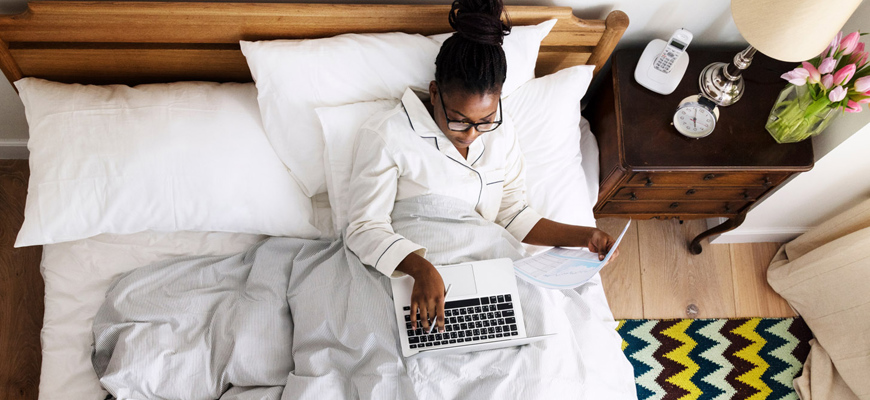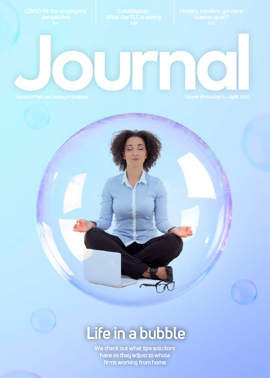Too close to home

The first track on Bob Dylan’s 1965 album, Bringing It All Back Home, is “Subterranean Homesick Blues”, which pretty much describes our present predicament: buried at home and sick of it. COVID-19 will have permanent consequences for the way we live, and especially for the way we work. There was a time when an employee emailing his or her boss “WFH”, could expect a terse response along the lines of “WTF!” No more.
Working from home is double-edged. Freed from the delights of commuting, and in their own environment, many homeworkers report increased levels of productivity and greater wellbeing. A 2014 study of Chinese travel agents by Professor Nicholas Bloom of Stanford University reported productivity gains of 13% (he’d get a different result now, I imagine). For people with childcare or other family responsibilities, there are obvious advantages. Yet the picture is mixed. Many workers describe feelings of isolation and their unhappiness at the lack of social connection. The very people who make homeworking possible – Google, Facebook, Apple – have vast campuses of geeks offered free food, laundry, massage, hairdressing and even dog walking, to discourage them from going home.
The home work ethic
Ten years ago, I left an organisation of 2,000 people to begin a new career as an organisation of one. The nerve centre of my global HQ is up a short stairway from my bedroom. It’s great. But it’s different, and if you want to make a success of it, a few rules are in order. Here are my top 10:
- Don’t work in bed. It will give you backache, and lead to unacceptable quantities of crumbs on the duvet. Get up and get dressed. “Always put on your shoes in the morning, never your slippers,” said Sir Alex Ferguson, who knows a thing or two about achieving results. You may not be going out to work, but you are going to work, and if you look the part, you’ll feel the part. For video calls, having your top half in business attire and the other half in your underwear is a high-risk strategy.
- Certain things are not work: scrolling through your Facebook feed; posting your cat, or your car, or your carbonara on Instagram; checking the odds; watching Law & Order. Other forms of non-work are available.
- We are social animals. Right now, we have to observe distancing, but distance must not mean disconnection. Suggest to close colleagues that you have a regular catchup at the beginning and end of every day. Arrange a virtual drink or lunch together.
- If you can, create a dedicated workspace separate from the rest of the house. And as far as possible, agree boundaries with your fellow occupants, be they family, flat-sharers or others. When your door is closed, you’re working and mustn’t be disturbed. I recognise this is a counsel of perfection, and hard to enforce, especially with young children, but do the best you can.
- At the end of each working day, close the workspace door, and do something completely different. For lawyers, “office hours” is an elastic concept, but don’t let work spill over into what should be free time, unless it really is unavoidable.
- Eat properly. An entire box of Jaffa Cakes does not count as one of five a day.
- Take regular short breaks. Working on one’s own can feel more intense than when in a busy office. Every couple of hours, get up, walk around and take 10 minutes to relax.
- We can exercise outside only once a day just now, and it’s vital to do it. Run or cycle like fury if you want to, but a good walk is probably the finest combination of physical and mental regeneration on the planet. If you would rather stay in, online workouts abound.
- Not having to commute means that most of us have gained between one and two hours a day, roughly an extra day a week. Use some of it to be thoughtful about enhancing knowledge and skills. Don’t just think about the black letter law, but about the whole range of business and personal skills you’ve always wanted to acquire but never had the time. You do now.
- Finally, in these times of extraordinary anxiety, take care of your mental health. Give the same dedication that you bring to work to activities that absorb you, give pleasure, relaxation and escape.
“You don’t need a weatherman to know which way the wind blows,” sang Bob in “Subterranean Homesick Blues”. It’s a safe prediction that when this vile disease has passed, our transformed understanding of just how adaptable we can be, and of the remarkable tools now at our disposal, will have changed the way we work for good – and for the better.






